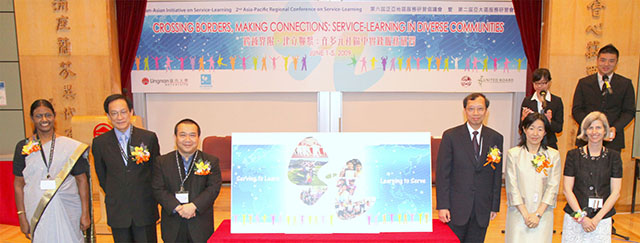Start Date
2-6-2009 9:45 AM
End Date
2-6-2009 10:00 AM
Description
The purpose of my presentation is to conceptually clarify the role of Service-Learning (S-L) in establishing mutual trust, peace and security under the globalized today’s world. Through our experiences, it has become evident that the international S-L is a powerful means in overcoming cultural diversity thereby building peaceful world. The globalization, beside its positive aspects, brings serious problems such as market failures, identity crisis, fundamentalism, inequity, etc., which brings uncertainty and human insecurity. To deal with these problems, we need to emphasize very basic human values universally found in most communities; “Back to Basics”. S-L is quite powerful where participants work together to attain common goals in solving problems. Conditions for successful program will be discussed from our S-L program experiences.
Recommended Citation
Yamamoto, K. (2009, June). Cross-countries experiences in organizing service-learning programs. Paper presented at the 2nd Asia-Pacific Regional Conference on Service-Learning: Crossing borders, Making Connections: Service-Learning in Diverse Communities, Hong Kong and Guangzhou, China.
Included in
Cross-countries experiences in organizing service-learning programs
The purpose of my presentation is to conceptually clarify the role of Service-Learning (S-L) in establishing mutual trust, peace and security under the globalized today’s world. Through our experiences, it has become evident that the international S-L is a powerful means in overcoming cultural diversity thereby building peaceful world. The globalization, beside its positive aspects, brings serious problems such as market failures, identity crisis, fundamentalism, inequity, etc., which brings uncertainty and human insecurity. To deal with these problems, we need to emphasize very basic human values universally found in most communities; “Back to Basics”. S-L is quite powerful where participants work together to attain common goals in solving problems. Conditions for successful program will be discussed from our S-L program experiences.
